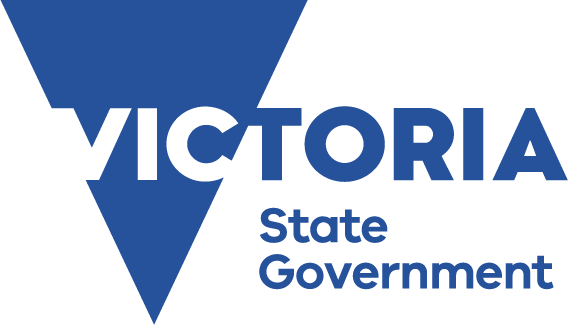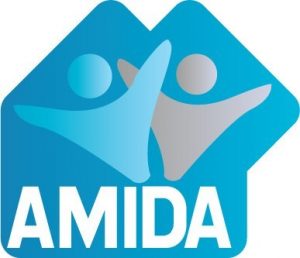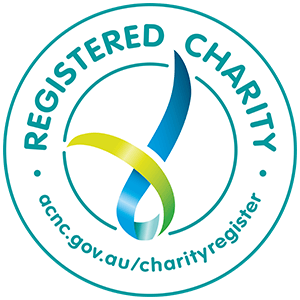Here are some real-life experiences of people with ABI who receive support from the National Disability Insurance Scheme (NDIS) and Transport Accident Commission (TAC). We hope their reflections may provide some handy pointers for those who are wanting to be or are already part of those schemes.
Clickability is another website you can utilise to find out about services that have helped others. You can also rate services that you have used to help others.
Lived Experience of the NDIS
Brent
When recalling his experience of trying to join the NDIS, Brent Alford emphasised the importance of being clear about his lived experience and the impact of his disability on his everyday life. He said his first application to the NDIS was rejected because the doctor completing the form didn’t really know the functional impact of his disability. Brent reapplied, and emphasised goal setting and talked about his needs. “Doctors don’t necessarily know what your support needs are”.
Having been accepted into the NDIS, Brent found the role of a support coordinator as pivotal. “In the first 3 months of my plan, when I didn’t have a support coordinator, I couldn’t get any services in place. A good support coordinator was vital”. Brent recommends using a plan manager as well.
Nia
“I applied for a place on the NDIS because I was experiencing vertigo every few months. This had the effect of putting me out of action for a few days at a time, which was really hard on myself and my family. The vertigo was brought on by leaning down the ‘wrong’ way so it meant I had trouble cleaning without triggering another episode.
I thought I might be eligible for some kind of support because my right side doesn’t work properly. I applied to the NDIS and they eventually rejected my application because I was ‘not disabled enough’. I then appealed but this time copied my medical notes from the time of my accident and put those in support of my application.
The appeal was successful. My plan was pretty simple because really all I wanted was a cleaner. My LAC was very good and suggested other things which have helped, like funding for low cost technology, transport funding, OT and physio if I need it.
I was able to employ a cleaner which is great. I also arranged for a physio home visit which happened fairly quickly after I requested it. My LAC is very good and I have a great rapport with her. I have had my plan extended for a further 2 years. Having said that I don’t have a whole lot of interaction with her but when I do, she is very helpful.
I don’t have a lot of contact or support services but those I do, I have no problem with. I think it took about a year for my initial application to be rejected and then go through the appeal process to establish a plan. My plan was written in October and then a cleaner was assigned in the following year.
It doesn’t seem to be a very quick service. I first saw a home physio in June and I am still waiting to have the orthotic fitted. This could be due to COVID or a really slow service—the supplier is dealing directly with the NDIS for payment. I did contact my LAC to find out what was going on and then I was rung by the physio service to ask what further appointments I needed. There didn’t seem to be a great chain of communication as all I was after was a progress report. But a few weeks later the physio I had seen contacted me again so maybe they just needed reminding.
That’s the sum of my interaction with the NDIS to date. Generally, I am happy with the service, I just don’t ever want to be in a hurry for results.”
Lived Experience of the TAC
The Transport Accident Commission (TAC) is a Victorian Government-owned organisation set up to pay for treatment and benefits for people injured in transport accidents, promote road safety and help Victorians get their lives back on track.
Col
When reflecting on his extensive and longstanding experience of being a client of the TAC, following a traffic accident some 15 years ago, Col Brokenshire stressed the importance of advocacy. “Having an advocate in your corner can be a great advantage – it might mean you don’t miss out on some support that you need”. Right from the early days, his wife was involved – “she helps out a lot when I’m talking with the TAC – so I don’t forget things. Or she might have a suggestion”.
Col says that the support from the TAC has been good and that “things have gone well for him”. One issue that he is aware of is that because he presents well, the extent of his needs may not be obvious. Col again highlighted that importance of having his support circle around him to make sure he gets the support he needs. According to Col, the TAC is supportive of having key family members and others involved to ensure good outcomes.
The role of the TAC support coordinator is critical to the planning and implementation of the TAC support in Col’s experience. But one challenge that he has faced is the turnover of staff – he has had three coordinators in the past 12 months. “It can mean lack of continuity”. Having a good (clinical) team is the other key element. Col pointed out that as well as providing their individual expertise (e.g., speech pathology, occupational therapy, recreation, and physiotherapy) the team are also part of the planning and review process, that occurs annually.
Anat
“Since I had a car accident, I am covered by TAC as this scheme is for people injured in road accidents in Victoria.
In the beginning, I had a good support worker which was subsidised by TAC. However, they cut this out, hence since then my family are helping me in all my dealings with TAC.
My parents and I have a yearly team meeting with the TAC, along with all my therapists. In these meetings, all the team plans our goals for the year ahead, with whatever we all think will be appropriate for the next year. Those meetings are like any other meetings, with everybody reporting the important updates in their specific area about the progress and what our goals are, for the coming year. My therapists (who are currently not many), are paid by TAC directly. This system of TAC managing the administration and payment of my therapists suits me.”
Kevin
Kevin was hit by a car while riding his bike about seven years ago. He recalls that accessing funds from the TAC was “pretty straightforward”. The hospital notified the TAC that he had been in a road accident. Having his wife as his advocate dealing with the TAC was very important. “Essentially my wife was able to manage it in my absence, because I was in the ICU… So TAC are responsible for all the medical bills and that’s been very useful.”
Kevin’s wife and accountant also managed his insurance policy claim. He still requires regular medical reports to access ongoing TAC and insurance payments but says that “it’s been okay.”





